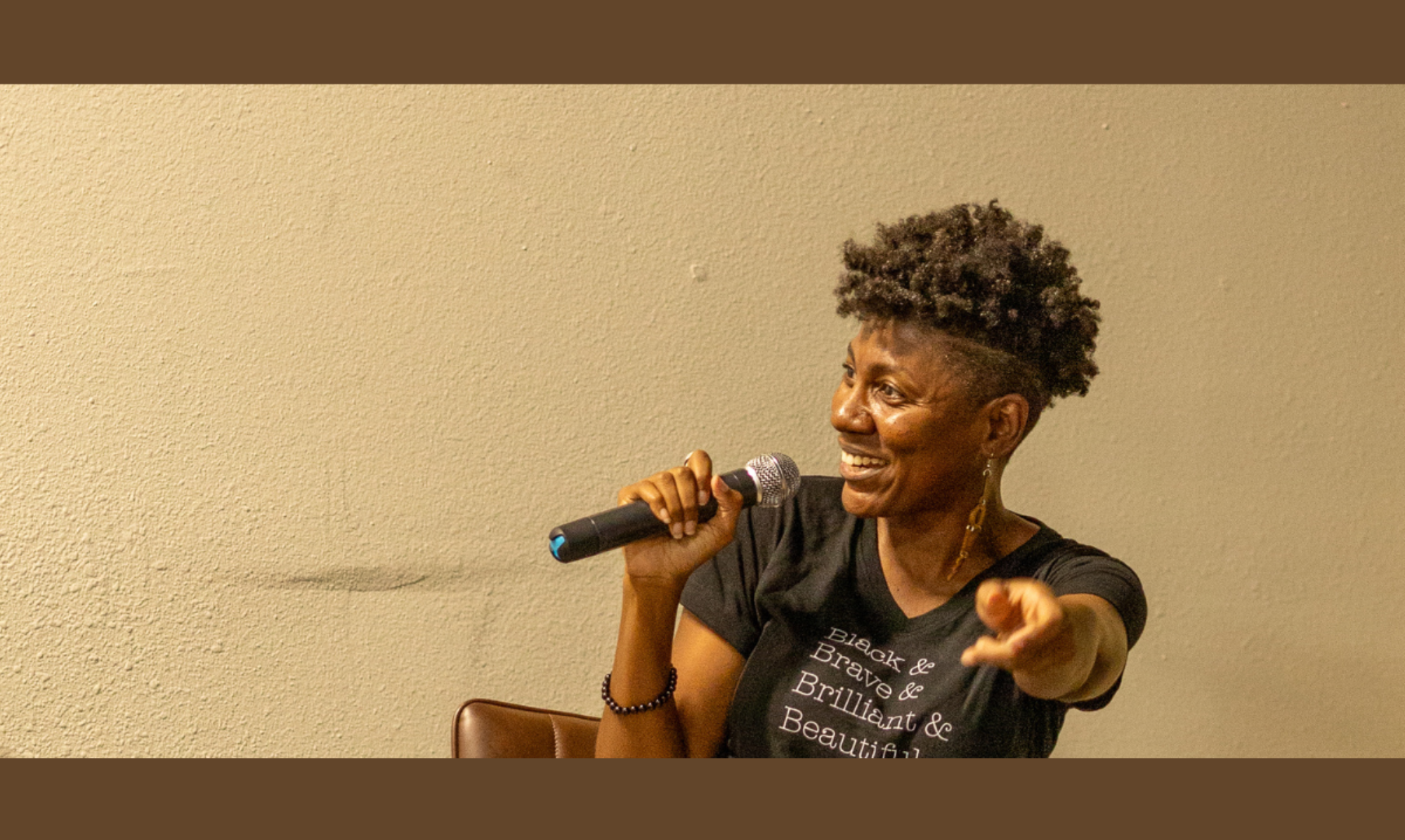Hello Gorgeous!
I’ve been sitting on this for weeks. Really years.
Lately I’ve been using a lot more photos of myself as the background for the quotes I post on social media. In a recent Instagram story, I noted that this was part of my strategy to dismantle colorism. I want to articulate that strategy more clearly because it brings out some of the insidious ways colorism persists even among the well-intentioned. I also think it’s helpful to share strategies so that more and more of us can implement practical tactics for progress.
I noted years ago, early on in this work, that people of all races seem more inclined to listen to and believe light skinned women who speak about colorism (and racism). Light skinned women are often given the benefit of the doubt, assumed to be credible, competent, unbiased or objective, especially in predominantly white or multi-racial spaces. But also in black spaces. They receive less skepticism, less push back. and less hostility when they speak up, especially if we’re talking about light skinned privilege.
This is an observation I became most aware of while presenting at conferences with my light skinned sister.
For me and so many other dark skinned black women who speak out against colorism, we are met not only with suspicion about our motives and skepticism about our credibility or intellect, we are also met with hostility and berated with personal attacks.
In response to Jessica Krug recently coming out as the sequel to Rachel Dolezal, many black folks who do antiracism work have said that such egregious lies are possible because of colorism and the ways that light skinned women are encouraged to take up space and be spokespeople for the race. This is all possible because of the implicit biases at play: who’s perceived to be educated, intelligent, articulate, professional, presentable, competent, upstanding, marketable, etc.
One of the first things I asked about Rachel Dolezal was would she have wanted to pass for black if it meant being dark skinned with 4c hair?
None of the blackfishers would. The reason black passing appeals to these white women is because they know how colorism places a premium on their features. They know that as a black woman they’d be positioned at the top of the color hierarchy. They’d have more privilege in black spaces passing as white-passing black people (the layers!) than they would as average white women in white spaces.
These examples, though, are not just of blackfishing on dating apps or for social media fame. These women were actively putting themselves out-front (and being pushed or welcomed to do so) as leaders on black historical, social, and political issues. They took up space masquerading as leaders in antiracist work all the while being racist in a particularly devious way.
So how does all of this relate to my strategy for dismantling colorism?
There’s increased demand for content on colorism, racism, antiblackness, and white supremacist systems. But none of this increased attention to these issues has actually elevated the position of dark-skinned black women. On the contrary, it has exacerbated divisions and served to reinforce the privilege of the privileged.
Society has said:
Hey, if we can get this info in a pretty (to us) package, then we’re in! Tell us about white-supremacist systems without challenging us to expel our own white-supremacist feelings. Give us the information on antiblackness that we need to boost our own clout and pacify our guilty consciences, but please don’t challenge us to reckon with our own antiblackness by attaching your image to it. Because by seeing you, dark skinned black woman, we’re forced to actually confront how we feel about your dark skin, type 4 hair, and wide nose. With your image attached, it’s no longer an abstract concept we can simply nod our heads at to appear as if we’re listening, all the while maintaining the status quo. When you come with your words, we are actually challenged to put into practice what we’re preaching.
I’ve seen firsthand how people are all too happy to take my words without taking me with them. And it’s painful to see people feasting on the fruits of my labor without inviting me to the table. It’s been painful to see people benefit from my creative, intellectual, and emotional output without recognizing the body, the mind, and the heart, that gave birth to, labored for, those ideas and words. The output of actual black women is not merely an intellectual game. It’s the flowering of years of life lived in the flesh.
My plan is to simply take full ownership and to be unapologetic about it. Part of what that looks like for me right now, is to be seen.
To be front and center. To put myself out there.
But it’s about the work. It’s not about me. Right?
Right?
I’ll expound on the other half of this strategy in a separate post.

